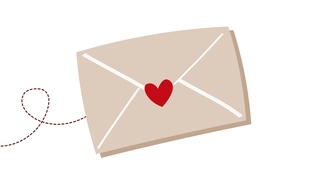
Inspiration
Why Photos Make Us Happy by Behavioural Psychologist Jo Hemmings
2nd April 2020
As part of our Pause for a Moment campaign, and the research we conducted that inspired it, we wanted to delve into the science behind photos – and why they make us so happy.
Therefore, we enlisted the help and advice of leading UK behavioural psychologist, Jo Hemmings, on how photography can help us to pause for a moment and enjoy the feel good factors of our favourite photos.
Jo is a Behavioural Psychologist and a registered member of the British Psychological Society (BPS); the British Association for Behavioural & Cognitive Psychotherapies (BABCP) and the Association of Clinical Psychologists (ACP).
Looks familiar? You may have seen her on ITV’s Good Morning Britain, This Morning, the BBC, Channel 4, C5 and Sky News.
Over to you, Jo!
Why Are Photos So Important When it Comes to Daily Well-being?
It’s never been easier to take a photo – or indeed to post one on social media. They are the visual language of our lives. But because of that ease, we often forget to look back at our carefully curated photos, and that means we are missing out on all the joy that they can bring. They remind us of people, pets, places and activities that we love as well as remembering the past. This has been shown to reduce our stress and enhance our mood and overall well-being. Research has also shown that having ‘real’ photos in our home, provides regular psychological positive reinforcement by reminding us of ‘social bond enhancement’ – essentially what and who are important to us!
Taking the time to look back on our treasured memories can be truly beneficial for our well-being as it can help to evoke feelings of positivity and happiness. Because of this, we should take more time to appreciate and look back on them!
The Psychological Impact of Photography
As humans, we take countless photos each and every year – a mind boggling amount of images ranging from selfies, family and friends, partners, pets, nature, holidays, travel and food – whether home-made meals or eaten in a restaurant. There seems to be no limit to what we will photograph, in a moment’s notice, from Architecture to Zoos… and everything else in between!
Why Do We Take So Many Photos?
The simple answer is that we can. As our smartphones become ever sophisticated with higher quality cameras, it takes no more than a nano second to snap a thought, sight or moment.
The more scientific reasons are that we are becoming hard-wired to use cameras in the same way that our brains work. We want to capture and remember moments, we want to record times and places of significance and we want to be able to recall those at will. In that way, the cameras on our phones are simply an extension of our cognitive skills – of sight, recognition and memory.
Research shows that people can experience a ‘photo taking impairment effect’, which, simply put, is that by taking so many photos, we may be in danger of losing actual recognition and detail. If we had just observed – rather than photographed – the moment would have been stronger and perhaps more meaningful. However, while this may be the case for some, the average Brit is still documenting their everyday lives by taking 1460 images a year. That number seems set to rise as the ease of which we can take and share high quality images grows.
Pause for a Moment to Reminisce
But research by CEWE shows that most of us rarely look back on the photos that we have taken, with 41% of us only looking back at our photos once or twice a year. And yet our mantelpieces, windowsills, shelves and sideboards, where many of us display our treasured photos in frames, have been shown to be one of the most peaceful places in our home. This is because of the immediate sense of well-being that we get by looking at photos of our loved ones at various stages in their lives.
When people review pictures on their phones, studies have shown that this not only helps your memories by enabling comforting and pleasurable conversations with families and friends, but will trigger primary and positive emotions like joy, love and delight. Looking back at our photos strengthens memory, relationships and our overall sense of well-being.
Looking back and reminising on happy times and special moments, creates an ‘emotional bubble’ – as if it’s on auto-response in which we return to that moment. The image that we see on screen or in print, fusing with our wider memories of the occasion that we haven’t photographed will stimulate oxytocin (the hormone that promotes feelings of love, bonding and strengthens social memory in the brain), and dopamine (known as the ‘feel-good’ hormone) which is an important part of your brain’s reward system. Even looking back at times that may never be recreated, and might make us melancholy, are still proven to have an overall positive impact on our well-being.
Using Photos to Manage Well-being
In these difficult times, we especially need to be mindful about our well-being. Laughing at silly photos releases endorphins, our body’s natural stress reliever. Seeing images of our friends and family in significant moments in our and their lives, reduces cortisol and adrenaline, which are the hormones responsible for anxiety.
Looking back on our treasured images to provoke positive emotions, far beyond the moment that we chose to capture that time, encourages empathy, emotional connectedness. It also allows us to make sense of what may seem like a random selection of photos, which we may have snapped on auto-pilot, but with recollection has a significance that endures. That is the very essence of mindfulness and well-being.
Thank you for discussing why photos make us so happy, Jo. We are all in need of a little pick-me-up!
What Will You Do With Your Photos?
Whether you’ve been inspired to print some of your favourite memories to place around your home, or taken the chance to create a beautiful CEWE PHOTOBOOK, now is the perfect time to seize the moment and invest in your well-being.
From reminiscing over your wedding, a holiday of a lifetime or a collection of your favourite photographs, put the kettle on, sort out your photographs and get creating!








